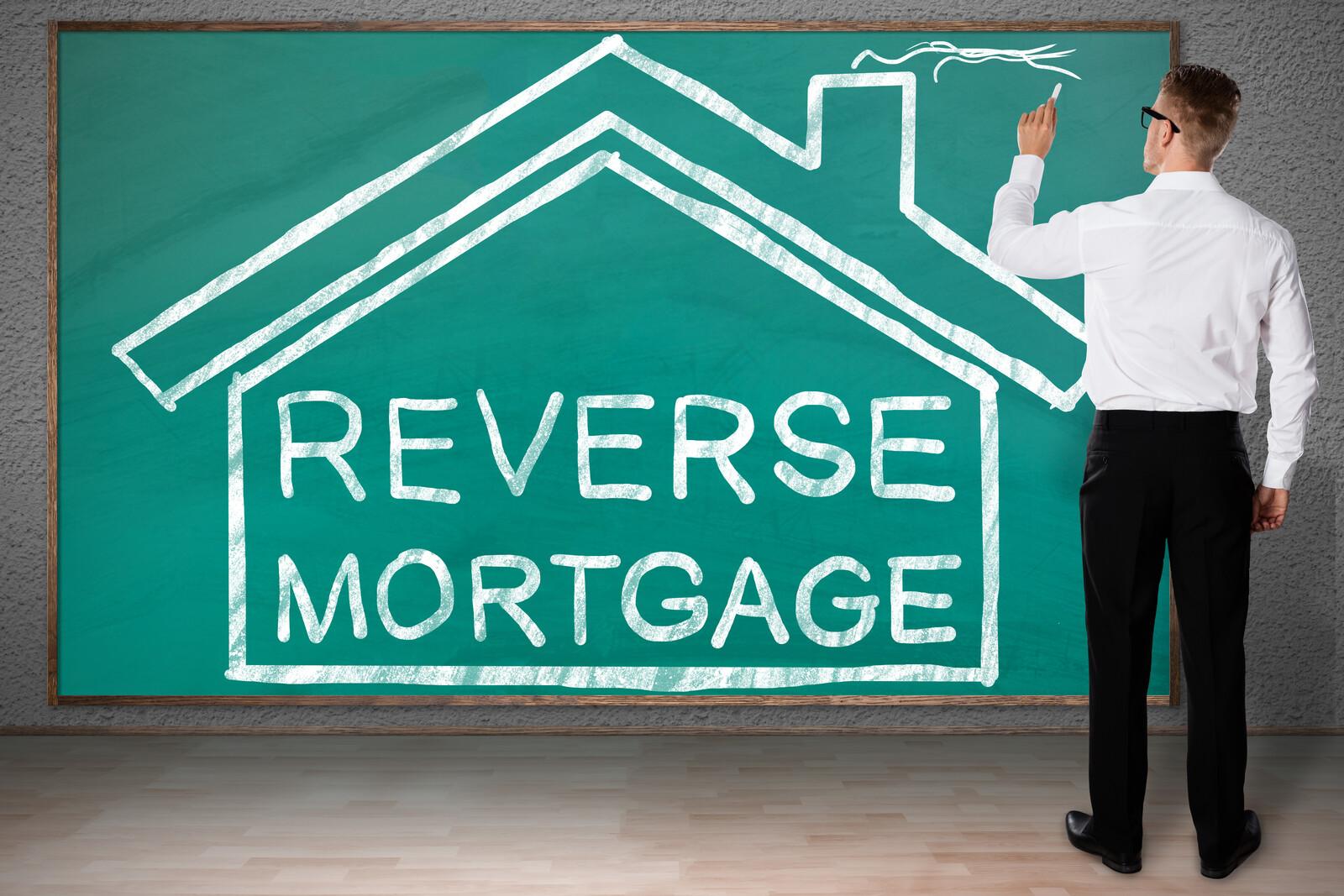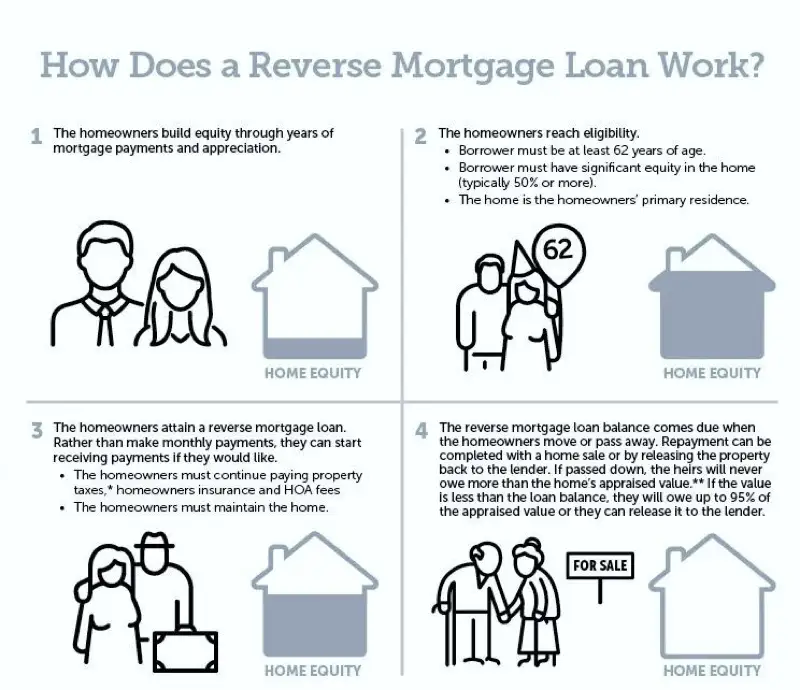A Guide to Help You Purchase Reverse Mortgage for Your Retirement Plan
A Guide to Help You Purchase Reverse Mortgage for Your Retirement Plan
Blog Article
Empower Your Retired Life: The Smart Means to Acquisition a Reverse Home Loan
As retirement strategies, numerous people look for effective techniques to boost their financial self-reliance and health. Amongst these strategies, a reverse home loan arises as a viable option for house owners aged 62 and older, permitting them to tap into their home equity without the requirement of month-to-month payments.
Comprehending Reverse Home Mortgages
Understanding reverse home mortgages can be important for homeowners seeking monetary adaptability in retired life. A reverse home mortgage is an economic item that permits qualified home owners, typically aged 62 and older, to convert a portion of their home equity into cash. Unlike typical home loans, where debtors make regular monthly repayments to a lending institution, reverse home loans make it possible for homeowners to get settlements or a round figure while maintaining ownership of their property.
The quantity readily available via a reverse home loan depends on several variables, consisting of the property owner's age, the home's value, and existing rate of interest rates. Importantly, the loan does not have actually to be paid back until the home owner offers the home, vacates, or dies.
It is crucial for prospective borrowers to recognize the ramifications of this financial item, including the influence on estate inheritance, tax obligation considerations, and recurring duties associated with home maintenance, tax obligations, and insurance. Furthermore, counseling sessions with certified specialists are frequently called for to guarantee that consumers completely understand the terms and conditions of the loan. Generally, an extensive understanding of reverse home mortgages can empower home owners to make informed choices concerning their financial future in retired life.
Advantages of a Reverse Mortgage
A reverse home loan supplies a number of engaging advantages for eligible home owners, particularly those in retired life. This financial tool permits seniors to transform a section of their home equity into money, offering crucial funds without the requirement for regular monthly home mortgage repayments. The cash acquired can be made use of for numerous objectives, such as covering medical expenditures, making home renovations, or supplementing retirement earnings, hence enhancing total monetary flexibility.
One considerable benefit of a reverse home mortgage is that it does not call for repayment until the house owner vacates, offers the home, or dies - purchase reverse mortgage. This attribute makes it possible for senior citizens to maintain their way of living and fulfill unanticipated prices without the burden of monthly payments. In addition, the funds obtained are generally tax-free, enabling property owners to utilize their cash without fear of tax implications
Furthermore, a reverse mortgage can give comfort, recognizing that it can act as a monetary security net during tough times. Home owners additionally maintain ownership of their homes, ensuring they can proceed staying in a familiar environment. Ultimately, a reverse home mortgage can be a critical funds, empowering retired people to manage their finances properly while appreciating their golden years.
The Application Process
Browsing the application process for a reverse mortgage is an essential action for house owners considering this monetary alternative. The initial phase includes assessing qualification, which commonly requires the home owner to be a minimum of 62 years old, very own the residential property outright or have a reduced mortgage equilibrium, and inhabit the home as their primary house.
When eligibility is verified, property owners have to go through a therapy session with a HUD-approved counselor. This session makes certain that they completely recognize the implications of a reverse home mortgage, including the duties involved. purchase reverse mortgage. After finishing therapy, applicants can continue to gather needed documents, including evidence of revenue, assets, and the home's worth
The next step requires submitting an application to a lending institution, who will certainly evaluate the monetary and home credentials. An appraisal of the home will likewise be see it here performed to determine its market price. If accepted, the lending institution will provide loan terms, which must be assessed thoroughly.
Upon approval, the closing procedure follows, where last records are authorized, and funds are disbursed. Understanding each phase of this application procedure can dramatically enhance the house owner's self-confidence and decision-making regarding reverse home loans.

Secret Considerations Before Acquiring
Getting a reverse home mortgage is a significant financial decision that requires careful consideration of several essential elements. Initially, comprehending your eligibility is essential. Property owners should go to the very least 62 years of ages, and the home has to be their primary home. Assessing your economic needs and objectives is just as vital; establish whether a reverse home loan lines up with your lasting plans.

A reverse home mortgage can impact your eligibility for certain government advantages, such as Medicaid. By completely evaluating these factors to consider, you can make a more educated decision about whether a reverse home loan is the right monetary strategy for your retirement.
Maximizing Your Funds
When you have actually secured a reverse home loan, properly taking care of the funds comes to be a priority. The flexibility of a reverse home loan allows property owners to utilize the funds in numerous ways, but strategic preparation is important to optimize their advantages.
One key approach is to create a budget plan that describes your monetary objectives and month-to-month costs. By recognizing needed expenditures such as health care, home tax obligations, and home upkeep, you can allot funds as necessary to make sure lasting sustainability. Furthermore, consider utilizing a part of the funds for financial investments that can review produce earnings or value in time, such as common funds or dividend-paying supplies.
An additional important facet is to keep a reserve. Setting apart a book from your reverse home mortgage can assist cover unanticipated costs, offering comfort and monetary security. Additionally, seek advice from a monetary expert to explore feasible tax obligation implications and how to incorporate reverse home loan funds right into your general retirement method.
Ultimately, sensible administration of reverse mortgage funds can improve your economic protection, allowing you to enjoy your retired life years without the stress of financial unpredictability. Mindful planning and notified decision-making will make certain that your funds function efficiently for you.
Conclusion
To conclude, a reverse home mortgage presents a practical monetary approach for elders seeking to enhance their retired life experience. By transforming home equity into easily accessible funds, people can address essential costs and protected additional monetary sources without sustaining monthly payments. Mindful consideration of the connected effects and terms is crucial to optimize benefits. Inevitably, leveraging this financial tool can promote greater freedom and improve overall high quality of life throughout retirement years.
Comprehending reverse mortgages can be critical for homeowners looking for financial adaptability in retirement. A reverse home mortgage is a monetary item that enables eligible home owners, generally aged 62 and older, to transform a section of their home equity right into cash. Unlike conventional mortgages, where borrowers make month-to-month repayments to a lending institution, reverse mortgages enable property owners to get payments or a lump amount while maintaining possession of their home.
Generally, a complete understanding of reverse mortgages can encourage house owners to make enlightened choices regarding their economic future in retirement.
Consult with a financial expert to check out possible tax obligation ramifications and exactly how to integrate reverse home mortgage funds right into your general retired life approach.
Report this page